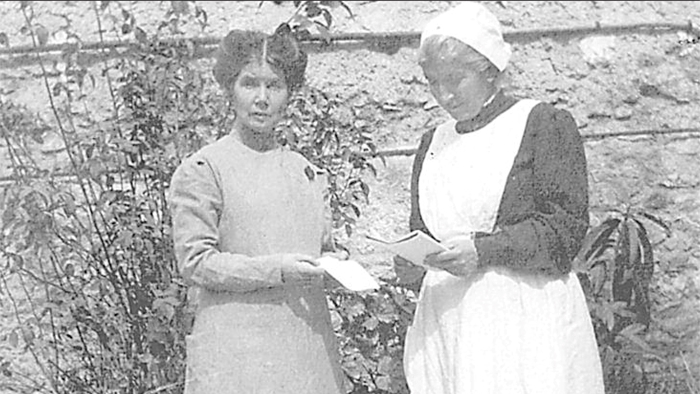
Stories Talk | Presentation Skills and Effective Storytelling
Stories Talk | Presentation Skills and Effective Storytelling
#medicine #science #pioneer #womendoctors
By Mia Kollia
Translated by Alexandros Theodoropoulos
Maria Kalapothaki was born in 1859 in Athens, daughter to Dr. Michael Kalopothakis and the American missionary Martha Hooper Blackler from Massachusetts. At the age of 12, Maria lost her mother and moved in with relatives in the US, where she completed her studies at Harvard Annex (now Radcliffe College).
She returned to Athens, but was forced to leave again, this time in Paris, to fulfill her dream of studying medicine, since in the 1880s it wasn't possible for a woman to study at a Greek university.
Kalapothaki was admitted to the Medical School of the University of Paris in October 1886, having previously acknowledged her studies by obtaining the equivalent of the French Baccalaureate. Her studies in France lasted a total of eight years. During these years she had an inclination for surgery and gynecology, and spent all her free time on anatomy. However, her dissertation was concerned with the problems and injuries in children with chronic gastrointestinal disorders, because she knew that, at that time, infant mortality in Greece was at a high level and she wanted to do something about it.
She returned to Athens in 1894 and after taking exams at the Medical School of the University of Athens, she began to practice General Medicine. She is considered a pioneer of nursing in Greece as well as of public health in general.

With the outbreak of the Greco-Turkish War of 1897, Queen Olga commissioned her to train volunteer nurses in a hospital she had set up for the poor. A tireless Maria Kalapothaki delivered daily lessons to a large audience of women of all ages and classes and provided special training to those who showed special abilities and potential in taking greater responsibilities.
For her great contribution she was honoured by Queen Olga in 1899 with a silver medal with a cross and a red ribbon, engraved with the date 1897, in a special ceremony held at the palace to honour women who participated in the war.
Maria Kalapothaki was also the president of the "Union of Greek Women" founded by Kallirroi Parren. From this position she also offered great work putting at the disposal of the Greek Red Cross, in a short period of time, a perfectly organised hospital in Volos, which was at the forefront of hostilities at the war of 1897.
The hospital was housed in the house of I. Kyriazis, which was provided free of charge. The staff consisted of two Red Cross surgeons, Maria Kalapothaki serving as director and twenty selected nurses supervised by two trained British nurses.
Maria Kalapothaki also made a great contribution to the nation during the Balkan wars of 1912-13, when she treated innumerous wounded casualties. She conducted surgeries in the mountains and her endurance was monumental. As noted by Ioannis Tsevas who was her biographer, she used to work "like three male surgeons"!
Her contribution and support continued after the Greco-Turkish war of 1922 and the catastrophe of Smyrna, providing great services to the refugees. She spent her last years in her home at Koukaki, examining poor patients free of charge, while taking care to secure their medicines.
Despite being extremely conservative as a person, Maria Kalapothaki had secretly married Theodoros Stergioglidis in 1909, who was a native of Samos island and a former monk, and with whom she never had children. She passed away penniless in January 1941.
#feature